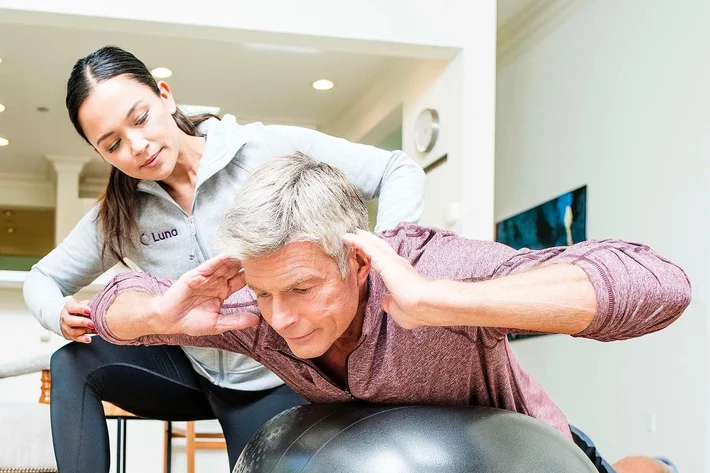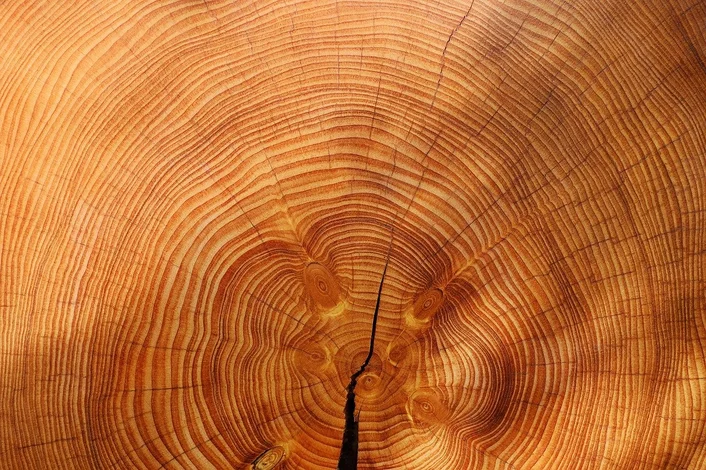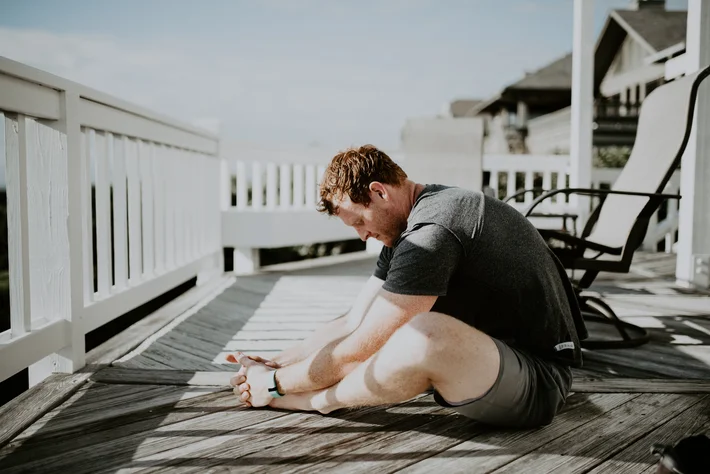
Meet with the best disc herniation physical therapists in Bristol, Connecticut
Bristol, Connecticut, Luna’s physical therapists are experts in the treatment of herniated discs. Our licensed PTs can improve symptoms, reduce pain, prevent further injury, and help patients return to their normal lives through a combination of active and passive treatments.
With Luna, patients can get physical therapy for herniated discs in the comfort of their homes. It’s physical therapy, delivered.

What is a herniated disc?
The bones (vertebrae) that make up the spine are separated and cushioned by small discs of cartilage, called vertebral discs. Round, flat, and consisting of a tough outer layer surrounding an inner jellylike material, vertebral discs essentially act as shock absorbers for the spine. When one of these discs is herniated, a fragment of the jellylike nucleus is pushed out of the outer layer and into the spinal canal, usually through a tear or rupture.
The displaced disc fragment can put pressure on the spinal nerves, causing discomfort, and in many cases, severe pain. Herniated discs can occur in any part of the spine, although they’re more common in the lower back.

What causes a herniated disc?
A disc herniation is typically the result of age-related wear and tear. With age, spinal discs lose water content, which makes them less flexible and more prone to tears or ruptures. Except for in rare cases, herniated discs usually aren’t caused by traumatic injuries like a fall or blow to the back. More often, they’re caused by aging and/or lifting heavy objects with improper form.
The most common causes of a herniated disc include:
- Excess body weight
- Repetitive lifting, pulling, pushing, or twisting
- A genetic predisposition to developing a herniated disc
- Aging

















